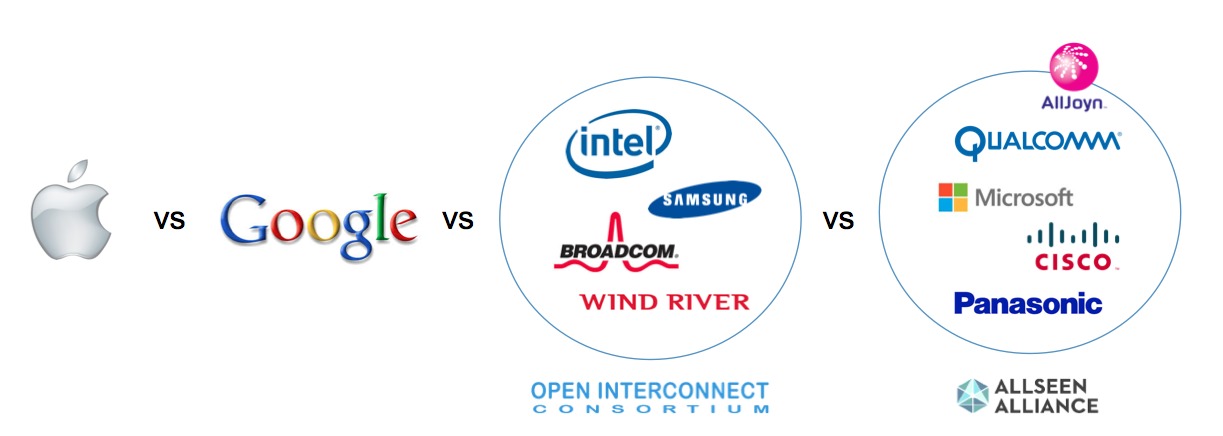The push to reduce complications within IoT just got more complicated.

A new standards player is in town; containing Intel, Samsung, Broadcom, WindRiver known as the Open Interconnect Consortium which is fighting to bring yet another set of standards to the Internet of Things, competing with the likes of the AllSeen Alliance and the mobile focused Apple and Google. It is clear that we are starting to see the foundations of fragmentation taking place here.
Part of the problem is the lack of real definition of what IoT actually should encompass; there are a number of potential verticals around smart homes, medical and fitness, automotive, industrial applications – all of which create their own demands and requirements. The FAQ on the Open Interconnect Consortium website clearly states their reasons to start a new organization:
Today, there are multiple forums driving different approaches to solve the challenge of IoT connectivity and interoperability. Currently, we don’t see one single effort that addresses all the necessary requirements. The companies involved in OIC believe that secure and reliable device discovery and connectivity is a foundational capability to enable IoT. The companies also believe that a common, interoperable approach is essential, and that both a standard and open source implementation are the best route to enable scale.Open Interconnect Consortium FAQThe question of why the member companies didn’t just join the existing AllSeen Alliance has been raised (ref: nytimes.com) – especially since the organization already has a number of product vendors signed up. Imad N. Sousou, general manager of Intel’s open source technology centre stated in response to that exact question “Intel and its partners evaluated all of the existing work, It’s not being done in a way that will drive widespread adoption.”.
Concerns have mounted based on the many chip manufacturers unwillingness to trust Qualcomm as a partner specific to intellectual property rights. Rob Chandhok of Qualcomm responded to such claims saying their intentions were not to make a profit from AllJoyn.
Only a few weeks ago Hyper/Cat was also announced, driven by the UK Tech Consortium which Intel is also a member of – however it is not clear if the Open Interconnect Consortium will consider it as a foundation of its efforts or not. It definitely should have been something asked – if they are not it will be yet another standard developers will need to consider.
It looks like there are going to be a number of fiercely competitive solutions out there and the developers and system integrators are going to have to pick and choose the companies that are sustainable to partner with. Wouldn’t it be much better if they all joined forces and truly discussed design concerns and suggestions for improvement and pushed for a single, universal standard sustainable for all parties and development possibilities.




